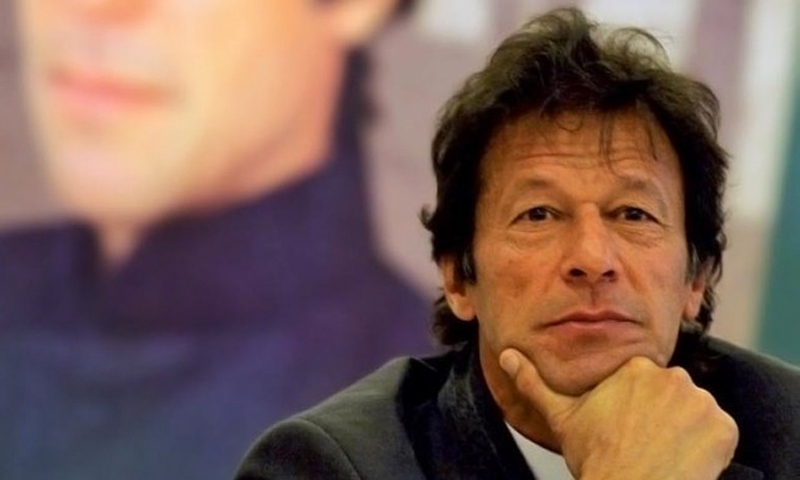Why Imran Khan must bat for civil society in Pakistan?
Prime Minister Imran Khan of Pakistan has set out an ambitious development and reform agenda. He is determined to reign in elite corruption and increase spending on health, education and women’s welfare.
To carry out these important social programs, Mr. Khan needs the support of Pakistan’s battered and bruised civil society. He needs to put an end to the coercion civil society groups have faced from the previous government and the military and help them to function effectively and without constraints.
In the past, Mr. Khan had taken various regressive positions — supporting the discriminatory blasphemy laws, attacking liberals, criticizing the press and describing the Taliban insurgency in Afghanistan as a legitimate jihad against occupying forces — but he has an opportunity to turn the page and embrace a new, more inclusive vision for the country.
Pakistan features on the lower margins of most international human development indexes. It has the worst infant mortality rate. A child born in Iceland has a one-in-1,000 chance of death at birth, while a child born in Pakistan has a one-in-22 chance, according to the United Nations Children’s Fund. Twenty-three million Pakistani children are out of school and millions of children enrolled in public and private schools can barely read or write.
Pakistan needs all the help it can get. Mr. Khan has to find the money and expertise to face these challenges when his government faces immense international debt repayments and collapsing revenues from taxes and exports.
Several international nonprofit groups such as Action Aid, Asia Foundation, Mercy Corps and Open Society Foundation have worked in Pakistan for years. Civil society organizations have helped during national crises like floods; promoted education in remote, rural areas; and have worked with minority groups such as Christians and Hindus, who are ignored by the state.
Instead of supporting local and international nongovernmental organizations, the Pakistani establishment has responded with a crackdown on these groups. The previous government and the military initiated proceedings to curtail the work and even eject scores of international civil society groups working in Pakistan. Sections of the establishment and right-wing television networks in Pakistan have been promoting allegations linking international NGOs to espionage and antigovernment activities
Last year, Pakistan ordered 21 international nongovernmental organizations to renew their registration in the country. When they submitted new applications in December, they were denied registration. No official explanation for the decision was provided. They are still waiting for a reply to an appeal.
Various programs run by these groups have been paralyzed for more than a year because of the uncertainty the government has created about their future. And tens of thousands of Pakistanis who work for nongovernmental organizations face the specter of unemployment. Donors such as Western governments are hesitant to come forth. Pakistani nongovernmental organizations work under extremely difficult conditions, as they don’t have the option of leaving the country nor of effectively challenging clampdowns by the state. Thousands of Pakistani civil society groups, especially the ones working to promote human rights, have been asked to renew their registration and submit answers to highly personal questionnaires. Foreign funding for these organizations has also been suspended.
Mr. Khan cannot make any real progress on his agenda of reform until he ends the curbs on civil society and enlists these groups in creating a better Pakistan.
It is tragic that while Islamabad has pressured and coerced nongovernmental groups, it has opened up greater political and social space for Islamic e x t remist groups and their affiliates. Pakistan’s Election Commission allowed several extremist groups such as Lashkar-e-Taiba — a State Department-designated terrorist group, which faces sanctions from the United Nations — to contest the recent general elections while using front organizations.
The military has argued that it is mainstreaming these groups by bringing them into the electoral process. But without any de-radicalization program in place, without a commitment from these groups to disarm their tens of thousands of followers and disavow their extremist ideology and show a commitment to democratic processes, allowing them to contest elections only helps them increase their support base.
Extremist groups fielded some 1500 candidates in the elections. While Lashkar-e-Taiba’s proxy failed to win a seat, the Sunni extremist group, Tehreek-i- Labbaik, won two seats in the Sindh Provincial Assembly and got over four million votes.
Mr. Khan needs to rectify this reckless state of affairs as Pakistan remains on the Financial Action Task Force’s “grey list” of countries that have not fulfilled their obligations to curb terrorist activities. According to Western diplomats, the F.A.T.F. review of Pakistan’s compliance in August did not go well.
F.A.T.F. is concerned about extremist groups being allowed to operate as charities in Pakistan while they are listed as terrorist groups by the United Nations. By October, Pakistan could be moved up to the “black list” of F.A.T.F. that includes North Korea and Iran and would result in international sanctions on Pakistan, unless it changes its behavior.
Apart from its direct political consequences, the failure to comply with the F.A.T.F. will also force donor countries to stop bilateral funding, most of which goes to nonprofit groups.
At present there is enormous good will for Mr. Khan, but how long it lasts will depend on whether he will continue policies that are clearly harming Pakistan’s global image, undermining civil society and preventing NGOs from carrying out their tasks.
Policy decisions to return international nongovernmental organizations to their previous status, complying with F.A.T.F. obligations and stopping the growing power of Islamic extremist groups are urgently required. At stake is Pakistan’s democratic future.
(Ahmed Rashid is the author, most recently, of “Pakistan on the Brink: The future of Afghanistan, Pakistan and the West.’’)
Related Posts

